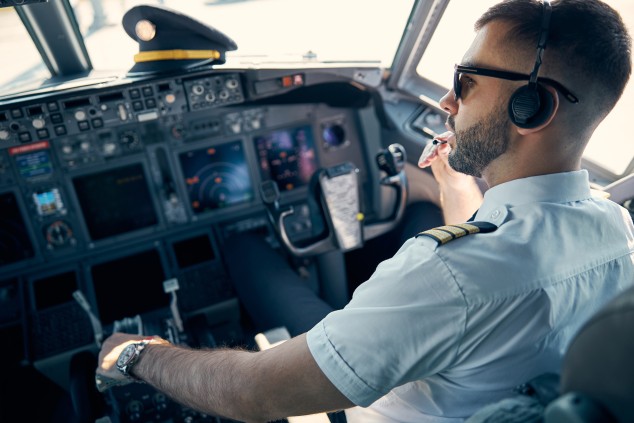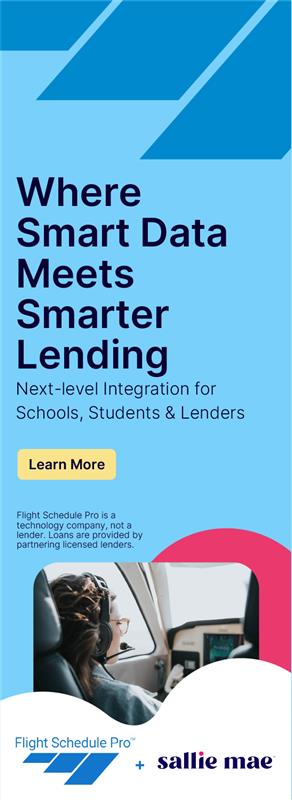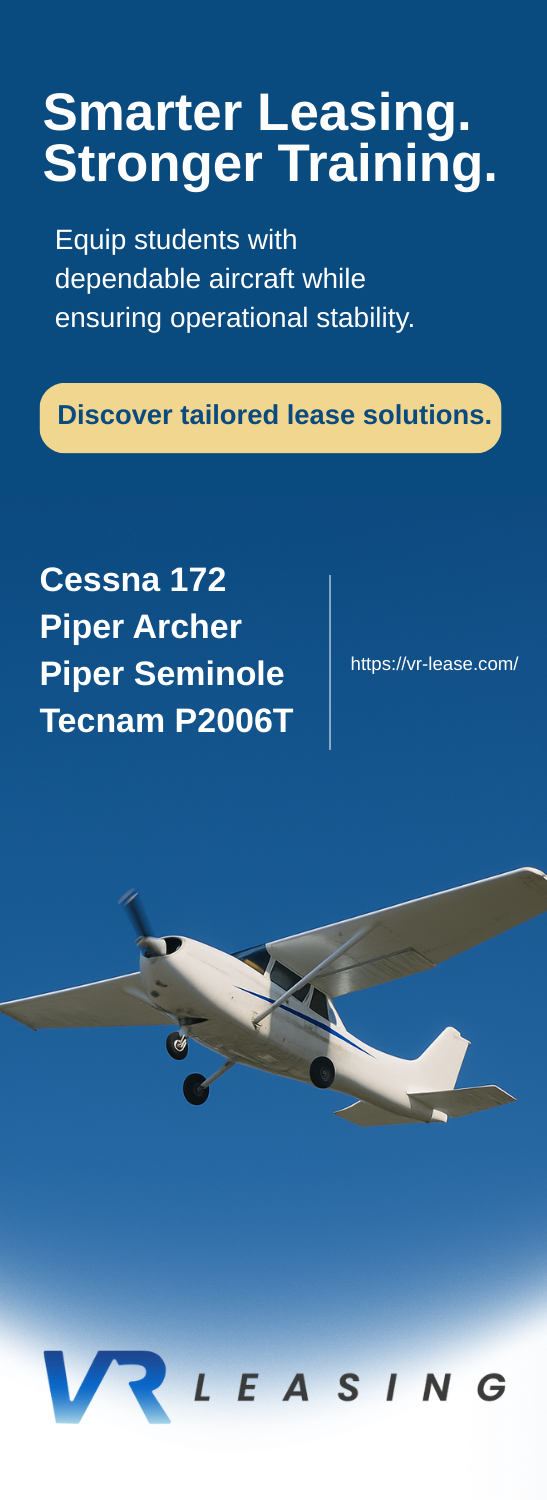International Aviation Recruitment Consultancy, Aerviva, Shares Insights on Pilot Interviews
Dubai, United Arab Emirates-headquartered aviation recruitment firm Aerviva has shared its insights on pilot interviews. Check out their article below entitled “How pilot interviews work differently”.
“After Investing in the education for certification and being tested by flight instructors, all pilots will inevitably encounter a moment to test the measure of their convictions for flight that had motivated the training thus far. If done properly, there are truly only a few moments more validating than a pilot’s first interview with an airline. From application to agreement for work, interview processes can take several months as airlines and operators will take time to review applications and schedule interviews based on their capacity to train. Any successful pilot will encounter numerous interviews during their career progression, so we have provided insights on how to best navigate the process.
As everyone in the industry knows, Boeing’s pilot and technician outlook calls for the creation of more than 674.000 pilots over the next 20 years, making it appear as though it would be simple for qualified pilots to be placed with an airline. While the market demand for more pilots exists, airlines are limited by aircraft, and air traffic control capacity, as well as their own ability to train.
For example, British Airways advertises that it would fund up to 200 positions for its Speedbird pilot academy. The Speedbird Academy program itself works through a number of partner flight schools including L3 Harris, and Skyborne. This past March, Skyborne reported that it had seen more than 20,000 applications for its academy. The competitive nature for this pilot selection process means failure rates can be anywhere between 50% and 90%.
Each carrier will have their own interview process, and we have spoken to a number of successful candidates who have provided us with feedback on their selection process experience.
Each process will begin with some sort of organizational flow, to sort qualified applicants. There are a few different pathways to earn qualification as a pilot, and interviews sometimes take place during education, prior to checkride. The European Aviation Safety Agency has done a lot of work to harmonize its training program with US regulation part 121. These regulations generally add formulaic processes to pilot training and interviews. When aviation academies and training centers have established agreements with airlines, applicants don’t necessarily need to possess their commercial pilot ratings for the interview. The biggest effect of this difference will be on the flow of the onboarding process with the airline, as each airline will have its own “class” of new hire pilots, and the first interview will hopefully establish a flow towards the airlines respective onboarding process.
The first questions of pilot interviews will have a similar nature to questions expected of any other job interview and are a key opportunity to provide insights into one’s behavior. Competent pilots will prove that they can answer questions directly and are assured in their reply. This information is key to understanding the seriousness of a potential pilot, and compatibility with the recruiting manager’s goals for their company culture. The first questions are like the first communication to air traffic control when entering new airspace. The goal of first communication will be to announce who you are, address who you are speaking to, and communicate intentions. Common questions such as “Tell us about yourself” are an opportunity for applicants to communicate that they are a responsible qualified applicant, acknowledge the airline in a matter that complements the idea of working together, and state the goal of being a part of that airline’s cohort of aircrew.
For every qualified candidate, there will likely be a number of interviews and associated checkrides to prove one’s skills. The number of interviews a pilot will go through may not be entirely distinctive from any other job, however there is a commitment to an onboarding and recruitment process that is unique to aviation. Boeing’s 2023 update to its pilot and technician outlook predicts a demand for 674,000 new commercial pilots over the next 20 . Due to pilot shortages, each airline will have its own work force development scheme to take qualified recruits to flow onto the flight deck at planned pace.
While the the first interviews are usually one-on-one, this doesn’t mean panel interviews are irregular. Infact, some airlines will conduct interviews as potential class members for an academy, something unique to the industry. Just as the workload in the flight deck can come from multiple sources at once, the panel interview is a great way for pilots to demonstrate efficiency in balancing multiple tasks and communicating while not losing focus.
On certain occasions in the interview process, applicants can be expected to work with other potential pilots in a group, or pool. Pool interviews are more often accomplished at large flight schools and requisite spots in applicable airline training academies.
At a certain point in the interview process, the interview questions will be expected to contain more technical and industry-specific information. For example, during a pool interview at a major IAG airline, groups of an academy class were asked to make a go/no-go decision for a planned flight toward a fictional destination. Pilots will be given weight and balance, fuel information, and asked to plan their flights. During early rounds of pilot interviews, air crew can also expect to be asked technical information for aircraft they have flown previously, including: What is proper propeller pitch for a 700 ft climb at 12,000 ft MSL? Or how is calculated takeoff performance calculated and displayed? These technical questions will test your knowledge of standard operating procedures for your aircraft.
During each step of the interview, pilots can expect their counterparts on the other end of the table to gather information. Applicants should be prepared and pay attention to the roles of the airline’s representatives. During interviews with check airmen, the best practice is to give the airmen the information they would want if the applicants were to be flying with them. Just as the key to a good landing begins with a good approach, the technical portion of the interview is the essential first step of a good subsequent check ride.
Interview processes can also include simulator time. Simulators are an important part of life as a pilot, as the European Union Aviation Safety Agency (EASA) has regulations requiring simulator training be conducted at least every 12 months. In recent years, simulator time can be different, or replaced for another work test as time in the simulator is an increasingly scarce commodity. If pilot interviews include simulator time, pilots should take advantage of the opportunity to demonstrate crew resource management. For this simulator time, you will likely be given a packet of information and assigned a fellow applicant. Currently, it’s important not to think of this fellow applicant as your competition, but as your aircrew. If you can work well with your fellow applicants, it will tell your airline that you can work well with their crew.
Additionally, the time in a simulator is an important opportunity to demonstrate one’s ability to be taught. Successful applicants will need to go through training for the airline that has contracted them to fly, so it’s important that pilots demonstrate their ability to receive training during the simulator time. Airlines will make simulators difficult and challenging and that’s on purpose, asking questions helps here. The most common mistake would be forgetting a call out, pilots should make every effort to make callouts to utilize crew resource management.
Pilots will receive binders of information prior to simulator time. It’s important to study this information and review it with your crew members during your simulator time before the start of the interview. Airlines such as Ryanair have published video tutorials for their simulator examination, which stress the importance of callouts and procedure.
The interview is an important part of any career development. For pilots, these interviews can open lifetimes of opportunities that are predicated upon access to future qualifications and aircraft type-ratings. These interviews will follow a pattern, and flow for success. Aerviva wishes all of its candidates well, and good luck during these interviews.”
About Aerviva
Aerviva is a Dubai-based international consultancy, specializing in recruitment services, contract management, staff leasing expertise, personnel and crew leasing & other personalized solutions in aviation consultancy.
Source: Aerviva
Photo Credit: Aerviva

You may also check our Terms and Conditions for our Content Policy.
Searching for specific information – kindly contact us to see if we can assist you.
Check out the more than 18379 relevant pilot training industry updates here.




